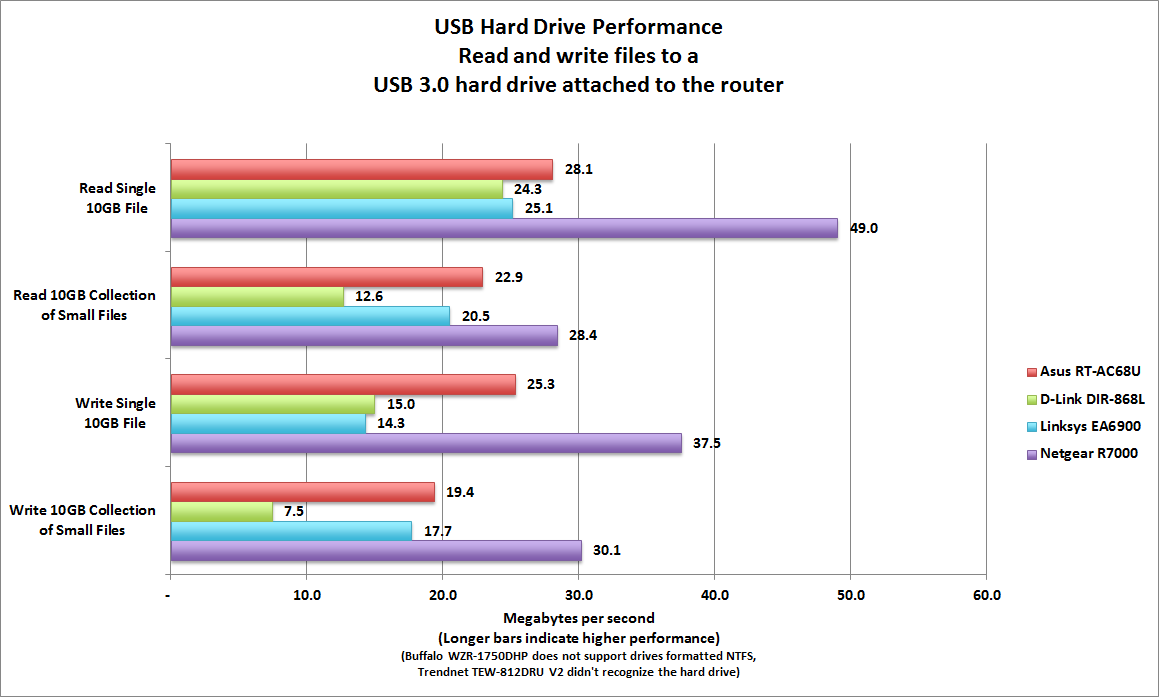CanesVenetici
Limp Gawd
- Joined
- Jul 19, 2007
- Messages
- 473
I have an Asus rt-n66u gigabit router that two usb 2.0 ports on it. It supports hooking up hard drives as kind of a NAS storage solution and I thought that would be great.
Well I'm getting pretty terrible transfer speeds to the hard drives hooked up to it.
Being usb 2 I figured I might get roughly 30 Mb/S, give or take...
I've been averaging more like 6 Mb/S.
It doesn't matter what hard drive I try using it with, it averages about 6.
Does anyone else have this router and/or this setup?
Any ideas?
The computer I've been transferring from is hard wired in.
Well I'm getting pretty terrible transfer speeds to the hard drives hooked up to it.
Being usb 2 I figured I might get roughly 30 Mb/S, give or take...
I've been averaging more like 6 Mb/S.
It doesn't matter what hard drive I try using it with, it averages about 6.
Does anyone else have this router and/or this setup?
Any ideas?
The computer I've been transferring from is hard wired in.
![[H]ard|Forum](/styles/hardforum/xenforo/logo_dark.png)
